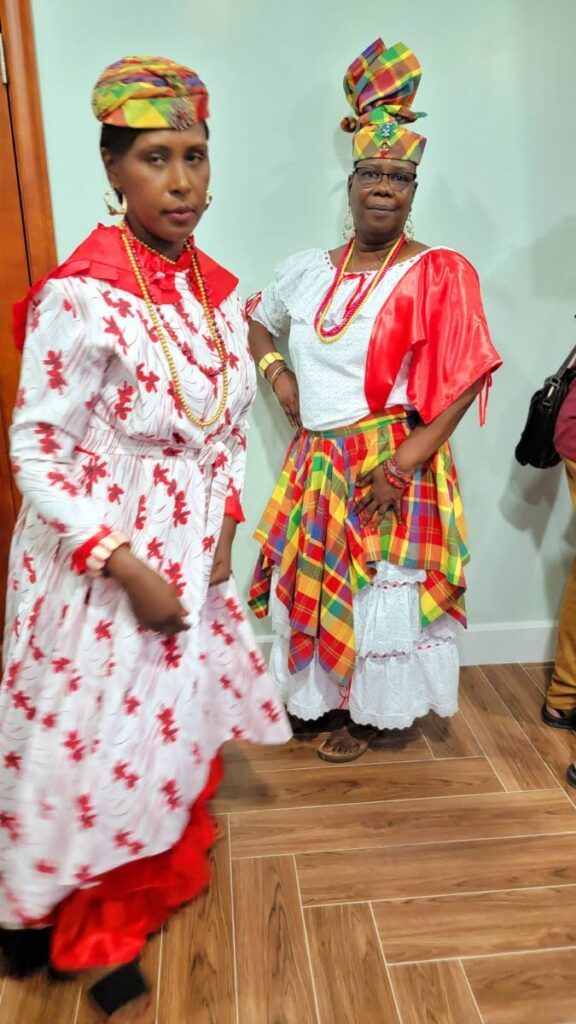Registration opens for Caribbean Yard Campus Dry Season 2024 courses

The Caribbean Yard Campus (CYC) Dry Season 2024 series of courses begin on April 8 and run until June 29. This year six courses are being offered, including the ever-popular Sweet Broom And Bitter Bush and Nou Ka Pale Patwa.
CYC is a community-based organisation dedicated to the transformation of regional education and development through the use of traditional knowledges. Its curriculum explores the rich Caribbean heritage of indigenous medicine, agriculture, languages, history and philosophy.
CYC coordinator Rawle Gibbons said the courses being offered are Sweet Broom And Bitter Bush: The Science Of Traditional Medicine; Philosophizing The Caribbean: Contemporary Issues; Indigenous Conversations: Lokono, Kali'na, Garifuna, Warrau; Indigenous Conversations; Philosophizing The Caribbean; and Nou Ka Pale Patwa. All courses will take place virtually.
“The Caribbean Yard Campus is about passing on the areas of indigenous knowledge we’re not generally exposed to, and are endangered in some ways.
“That’s why we do that patwa course, it’s always very successful. A number of young people, as well as older people, who have memories of their mothers speaking patwa and so on come to that. We try to run that every season.”
The second repeating course is Sweet Broom and Bitter Bush, the herbal medicine course. Gibbons said it is called the science of traditional medicine because the scientific aspects are blended with the traditional aspects.
“This course takes place on a Monday, but it has a field aspect to it, as Saturdays will largely be in the field. It’s mixed, and for the people who are not here for that, we encourage them to explore their own environment, to find herbs and so on and come back with them, bring them back into the class. When we go on field trips, we still document it, so we’re still able to share the knowledge we gained.”
Two courses are returning after a hiatus: Indigenous Conversations and Philosophizing The Caribbean. These are paired with a new course, Philosophizing The Caribbean: Contemporary Issues.
Gibbons said these courses look at the ideas which formed and currently reign in the Caribbean. They’re a collaboration with an institution in Barbados called the Hybrid Studies Institute, which is an independent institution run by Dr Deryck Murray.
“We feel it’s important to look at the ways we have developed our own views of life as a Caribbean people. We’ve done that in the past, in these two courses, where we looked at the ideas that people who came here brought with them, both the indigenous people and those who arrived afterwards, we looked at the ideas they brought with them as philosophy, and then we looked at the ideas we created here in serious ways through the writers, the activists, and so on.
“In this third part we’re looking at contemporary issues and the ways in which what we have created, our ways of thinking have influenced that, and the ways in which contemporary issues influence us as Caribbean people. That’s the kind of exchange we’re trying to construct in this course.”

The final new course is Indigenous Conversations: Lokono, Kali'na, Garifuna, Warrau, which explores the languages of indigenous peoples. Gibbons said this was a new course not only to CYC but academia as a whole.
“The languages we’re looking at are those of the Lokono people, that they call Arawak, the Kali’na people that they call Carib, the Warrau who were early settlers here, the Banwari person might have been Warrau, we’re not sure, and Garifuna, which is based in Central America but coming out of St Vincent, they have their own language and so on. Most of the facilitators will come from Guyana and Belize, as three of the languages are alive in Guyana and one is alive in Belize.
“We treat the languages as doorways to the actual culture of the indigenous people, as a way of understanding what they’re about. We feel it’s important because it helps us understand ourselves too, because of the diversity we have as Caribbean people.”
He said there was one fascinating aspect to the course which related to Trinidad and Tobago in particular.
“It’s about understanding the landscape, because there are so many names in TT, Trinidad in particular, that are indigenous names, in terms of the proper names of the country. Tacarigua, Tunapuna, Chaguanas, Chaguaramas, all of these are indigenous names. So it helps us to understand where we are and what we are. That’s the thinking behind this.”
The cost is $1,200 per course and they run for three months.
To register, go to www.caribbeanyardcampus.org. For more information, call/WhatsApp Rawle Gibbons: 868-355-0966. For Patwa, call/WhatsApp Nnamdi Hodge: 868-771-4952.


Comments
"Registration opens for Caribbean Yard Campus Dry Season 2024 courses"